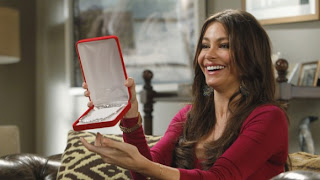 I've often been asked to choose my favourite film. Why just one, I ask?
I've often been asked to choose my favourite film. Why just one, I ask?For those of us self-proclaimed film snobs, here is a list of 100 essential art house films to see if you crave something a little bit different, engaging and provocative. This is my list. This is not a collection of canonical works: for that, try the American Film Institute and choose from their many, many lists, or perhaps Sight & Sound magazine. These are my favourites. I have limited my list to one film per director, to cast a wider net. I've also chosen some less "institutional" works for this list: notice for instance that I have chosen Altman's Prêt-à-Porter because I love it, and I did not care for either The Player or Short Cuts. (Oh, I can hear the critics sharpening their knives now ...)
Try something from this list and feel free to add your own! This list is by no means exhaustive and you won't agree with everything here. But let's debate what else should be here, what we should see, what we should skip!
In alphabetical order (with a tie for certain titles – because it makes sense once you see them):
 1. 8 ½ (1963; Italy; Fellini)
1. 8 ½ (1963; Italy; Fellini)2. Actress (1992; Hong Kong; Kwan)
3. Ali / Fear Eats the Soul (1974; Germany; Fassbinder)
4. All About My Mother (1999; Spain; Alomodovar)
5. Amadeus (1984; U.S.; Forman)
6. Angels & Insects (1995; U.K.; Haas)
7. At Five in the Afternoon (2003; Iran; Makmahlbaf)
8. Au Revoir, Les Enfants (1987; France; Malle)
9. Autumn Sonata (1978; Sweden; Bergman)
10. Bad Education (2004; Spain; Almodovar)
11. Barry Lyndon (1975; U.K.; Kubrick)
12. The Battle of Algiers (1966; Algeria; Pontecorvo)
13. Before Night Falls (2000; U.S.; Schnabel)
14. Before Sunrise / Before Sunset (1995 / 2004; U.S.; Linklater)
15. Being John Malkovich (1999; U.S.; Jonze)
 16. Belle de Jour (1967; France; Bunuel)
16. Belle de Jour (1967; France; Bunuel)17. Bill Cunningham New York (2011; US; Press)
18. Breaking the Waves (1996; Denmark; von Trier)
19. Broken Embraces (2009; Spain; Almodovar)
20. Cache / Hidden (2005; France; Haneke)
21. City of Lost Children (1995; France; Caro & Jeunet)
22. The Celebration (1998; Denmark; Vinterberg)
23. Clean (2004; France; Assayas)
24. Le Confessionnel (1995; Canada; LePage)
25. Contempt (1963; France; Godard)
26. The Cook, the Thief, His Wife & Her Lover (1990; U.K.; Greenaway)
27. Cries & Whispers (1972; Sweden; Bergman)
28. Cyrano de Bergerac (1990; France; Rappeneau)
29. Dancer in the Dark (2000; Denmark; von Trier)
30. Day for Night (1973; France; Truffaut)
31. The Diving-Bell and the Butterfly (2007; France; Schnabel)
32. Drawing Restraint 9 (2005; U.S.; Barney)
33. The Edge of Heaven (2007; Turkey; Akin)
34. Edward II (1991; U.K.; Jarman)
35. Eternal Sunshine of the Spotless Mind (2004; U.S.; Gondry)

































